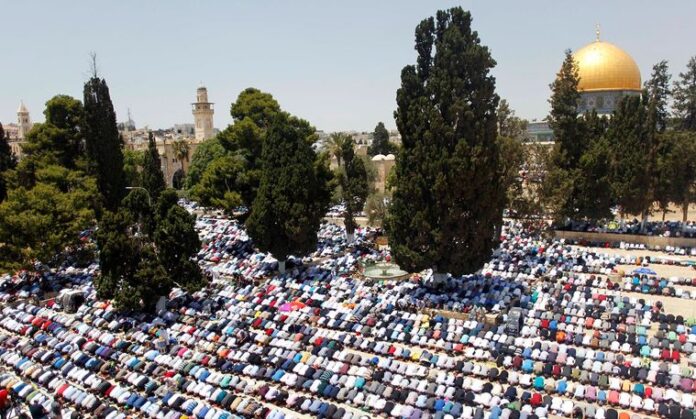Ramadan, the holiest month in Islam, is more than just abstaining from food and drink during daylight hours. It’s a time of profound introspection, spiritual rejuvenation, and personal growth. But why is Ramadan considered a time for personal growth? Let’s delve into the intricacies of this sacred month and uncover the reasons behind its transformative nature.
Fasting: A Path to Self-Discipline and Empathy

Fasting during Ramadan is not merely about refraining from eating and drinking; it’s a practice in self-discipline and empathy. Muslims around the world willingly forgo their basic necessities for an entire month, not out of obligation but out of devotion. This act of self-restraint fosters discipline in various aspects of life, transcending beyond the physical realm.
During fasting, individuals learn to control their desires, be it the craving for food or other worldly indulgences. This self-discipline cultivated during Ramadan spills over into everyday life, enabling individuals to better manage their impulses and temptations.
Moreover, fasting fosters empathy and compassion towards those less fortunate. Experiencing hunger firsthand instills a deep understanding of the struggles faced by the impoverished. This heightened empathy motivates individuals to engage in acts of charity and kindness, thus fostering personal growth through altruism.
Self-Reflection: A Journey Inward

In the hustle and bustle of modern life, it’s easy to lose sight of oneself amidst the chaos. However, Ramadan offers a sanctuary for introspection and self-reflection. By abstaining from worldly distractions, individuals are encouraged to turn inward and evaluate their thoughts, actions, and intentions.
The quietude of Ramadan provides an opportune moment for individuals to confront their inner demons, acknowledge their shortcomings, and strive for self-improvement. Through prayer, meditation, and contemplation, Muslims embark on a journey of self-discovery and spiritual growth.
Moreover, Ramadan serves as a time for reconciliation and forgiveness. It offers individuals the chance to mend broken relationships, seek forgiveness from others, and grant forgiveness to oneself. This process of reconciliation and introspection paves the way for personal growth and emotional healing.
Spiritual Devotion: Nurturing the Soul

At its core, Ramadan is a time of heightened spiritual devotion and connection with the divine. Through increased prayers, recitation of the Quran, and acts of worship, Muslims seek to strengthen their bond with Allah (God) and draw closer to Him.
The spiritual practices observed during Ramadan serve as nourishment for the soul, replenishing it with peace, tranquility, and spiritual enlightenment. By immersing themselves in prayer and devotion, individuals experience a profound sense of fulfillment and purpose, transcending the materialistic pursuits of the world.
Furthermore, Ramadan cultivates a sense of community and unity among believers. The collective observance of fasting and prayers fosters solidarity and mutual support, reinforcing the notion of brotherhood and sisterhood in Islam. This communal spirit not only enriches the individual’s spiritual journey but also contributes to the growth and cohesion of the Muslim ummah (community).
FAQs About Ramadan and Personal Growth
Q: Is Ramadan only about fasting?
A: While fasting is a central aspect of Ramadan, the month encompasses various spiritual practices, including increased prayers, charity, and self-reflection.
Q: How does Ramadan promote personal growth?
A: Ramadan promotes personal growth through fasting, which instills self-discipline and empathy, self-reflection, which encourages introspection and self-improvement, and spiritual devotion, which nourishes the soul and strengthens the bond with the divine.
Q: Can non-Muslims benefit from Ramadan?
A: Absolutely! The values of self-discipline, empathy, and spiritual devotion promoted during Ramadan are universal and can be embraced by individuals of all faiths or backgrounds.
Conclusion
In conclusion, Ramadan is much more than a month of fasting; it’s a journey of self-discovery, spiritual enlightenment, and personal growth. Through the practices of fasting, self-reflection, and spiritual devotion, individuals transcend their physical limitations and embark on a transformative journey towards self-improvement and spiritual fulfillment. So, the next time someone wonders, “Why is Ramadan considered a time for personal growth?” the answer lies in the profound experiences and spiritual insights gained during this sacred month.


